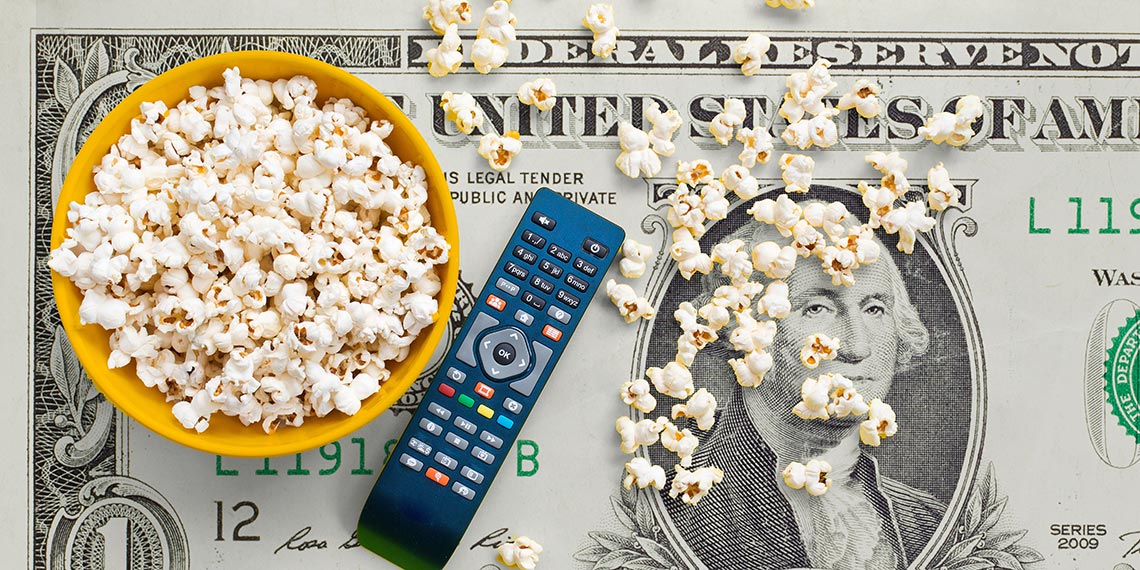
You’ve caught up on all the sitcoms and dramas available on every streaming service known to man. You’ve baked 100 variations of sourdough. You’ve rearranged your sock drawer … twice. Now what do you do? How about spending some quality time on an activity that could increase your net worth?
Whether you have a financial plan in place—or have been too busy to consider one—now is the perfect time to assess your assets and review your revenue. You don’t even need a financial advisor to get started (although bringing one on board would be a smart part of your strategy). Consider these four ways to turn your valuable free time into a healthier financial future.
1
Teach Your Old 401(k) a New Trick (Time: 30+ minutes)
Have an old 401(k) parked with a former employer? Now’s a great time to teach your savings how to roll over. Exercise your right to transform that retirement account into one that gives you more control by rolling it into an IRA account. Your financial institution or investment advisor can fetch the necessary documents; when you make the withdrawal, be sure to ask the institution that holds your 401(k) to make the check out to the fund’s new “home” to avoid having the required 20% tax withheld.
2
Bake Up a New Budget (Time: 60+ minutes)
The recipe for budgeting is easier than you might think. Start with online banking and credit accounts, which provide the basic ingredients to evaluate your monthly and annual spending. Are decreases in certain expenses (like commuting or entertainment) and increases in others (such as groceries and utilities) leaving you with a surplus or deficit? Averaging expenses over the past three months can provide you with a reasonable snapshot of your annual spending. Be sure to fold in quarterly and annual bills, like property insurance and taxes, as well as less frequent line items, such as auto maintenance, clothing, school supplies, holiday parties and gifts.
Now, “proof” your budget by sharing it with a partner, parent, trusted friend or advisor to ensure you didn’t leave out any important expenses. Then it’s time to objectively “taste” your budget. Are you saving enough? Many experts contend that you should save 20% of your income, for emergency funds, short-term and retirement savings.
3
Clean Up Your Credit (Time: 60+ minutes)
Haven’t checked your credit history and score lately? It’s time to dust off your credit report and make it sparkle. Through April 2021, the three major credit reporting bureaus—Experian, TransUnion and Equifax—are offering free weekly credit reports. (Typically, consumers can pull one free report from each bureau per year.)
Review your report carefully with an eye toward your debt, but resist the urge to clean out credit accounts that you haven’t “worn” in a while. According to Experian, closing accounts may redistribute your overall debt among fewer lenders, which can lower your credit score even though you owe the same amount. Check your credit utilization, or the ratio of how much of your available credit you’re using: A number higher than 30% can negatively affect your score.
4
Shop Online … for Savings (Time: 30+ minutes)
Not all savings accounts are created equal. In the short term, spending just 30 minutes of your free time could yield a higher interest rate—and a lot of extra cash in the long run. Compare your local brick-and-mortar to online banks, which often pay higher interest rates.
You’ll also want to weigh the differences between regular savings, money market and certificate of deposit accounts. While you’re at it, look into tax-advantaged plans, such as IRAs, 529s and HSAs.
Make These Steps Routine
Revisiting your overall financial plan at least once a year is a great way to ensure that your money is working for you in the best way possible. In less time than it takes to binge the current season of your favorite series, you could be on the path to a more confident financial future.
Brigid Galloway is a freelance journalist who writes about personal finance and healthcare for media outlets including Marketplace and NPR.
Dig into the Vivid Crest Bank and Money.com study, Money and Saving: What They Mean in 2020.

